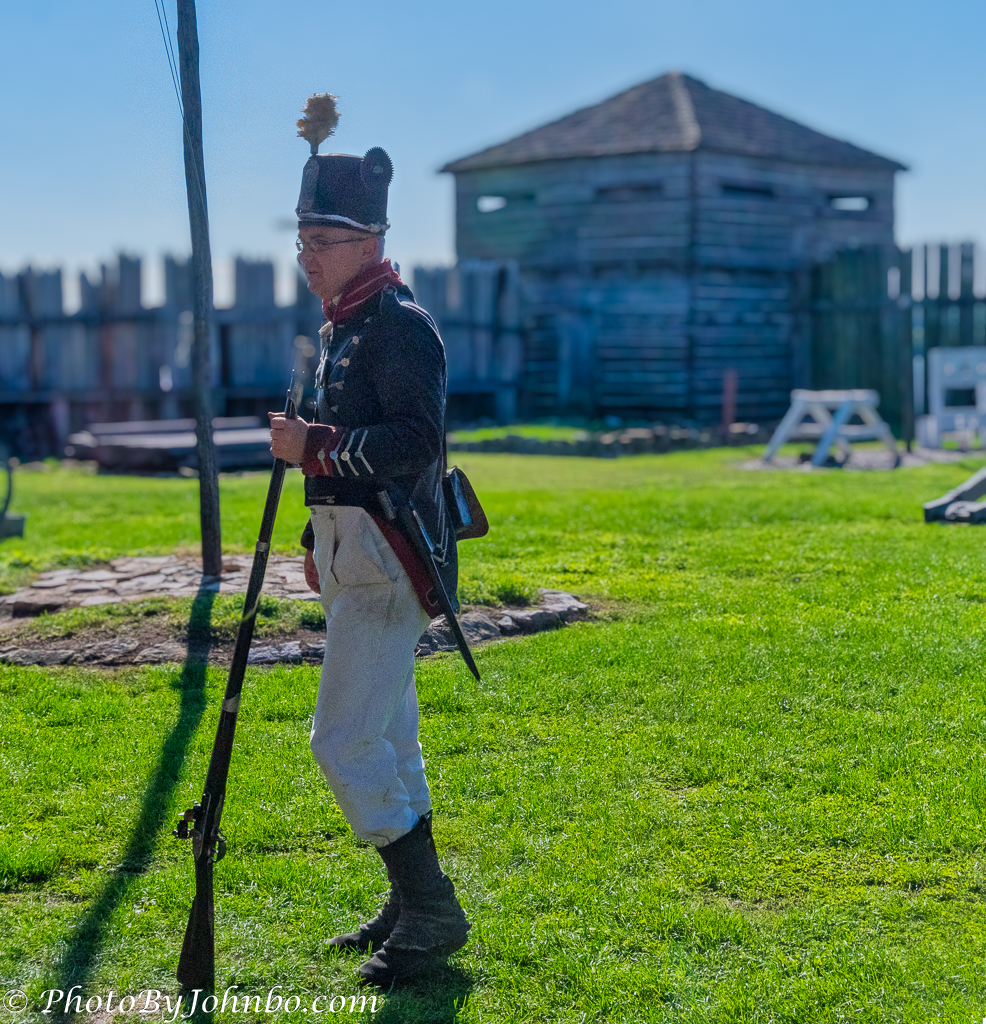
Fort Madison, IA.
A city named Fort Madison must have some history and, likely, a site set aside to remember the story. On a drive along Mississippi River country, we found that the historic fort no longer exists, but a replica fort was created in Riverview Park.
A quick search on the Internet brought me to the Fort Madison, Iowa, website. That fort was a historic military outpost that once stood guard over the upper Mississippi region. Built in 1808, Fort Madison served as a crucial trading post between the U.S. Army and Native American tribes for five years. It held the distinction of being the first permanent American fortification on the Upper Mississippi.
The fort witnessed a significant chapter in history – Chief Black Hawk’s first battle against U.S. troops, which makes it the only War of 1812 battlefield within Iowa’s borders. Additionally, Fort Madison housed the upper Midwest’s first U.S. military cemetery.
The original fort was short-lived. In 1813, facing pressure from Native American attacks and fearing capture during the War of 1812, the U.S. military itself ordered the fort to be evacuated and burned.
Archaeological discoveries were made in the parking lot of the former Sheaffer Pen Company factory in 1965. This location uncovered the original fort’s central blockhouse and foundations of officers’ quarters, but it likely represents only a portion of the fort complex. A more detailed history of the fort and its short history can be found on Wikipedia here.
We almost didn’t get to see the fort’s interior. We noticed a sign indicating that the recreated fort was only open on the weekends. We were about to turn around and leave when we noticed a large riverboat cruise ship docked at Riverview Park.
People from the ship were wandering around the park and going into the nearby fort. We went over to try the door we saw someone entering through, and it led us to an open gift shop and entrance to the fort. We soon discovered they opened the fort on days when the cruise ship stopped. We were invited in even though we weren’t from the cruise.
Unfortunately, as of this writing, the replica Fort Madison at Riverview Park is closed for reconfiguration. A city inspection revealed numerous problems, such as leaky roofs and crumbling foundations, making the structures unsafe for the public.
The city is discussing the fort’s future, but according to this article, the threat to completely tear the buildings down has been mitigated. Due to the replica fort’s location on the banks of the Mississippi River, the structures have suffered damage from floods over the years.
In late February 2024, workers began removing the fence around the fort. The Fort Madison City Council approved a plan to tear down the fencing around the Old Fort and make the landmark a self-touring site. Fort Madison City Hall confirmed that tear-down will just apply to the fencing and that the other buildings will remain standing.
Before opening again, the remaining buildings will be locked so no one can enter them. Placards will be installed around the buildings to inform visitors about the Old Fort’s history. Finally, the city will not employ staff at the site or hold reenactment events for the foreseeable future.
In addition to the replica Fort Madison, the Wikipedia article referenced above provides additional locations for visitors interested in the region’s history. Fort Madison features two distinct historic districts recognized on the National Historic Register. The first is the Fort Madison Downtown Commercial Historic District, a charming collection of well-preserved storefronts dating back to the late 19th century.
Just north of the commercial district lies the Park-to-Park Residential Historic District. Sprawling across seven blocks in length and three blocks in width, this residential area offers a glimpse into the architectural styles of the Gothic, Victorian, and Tudor eras. Homes within the district showcase various architectural influences, including Gothic Revival, Italianate, Second Empire, Eastlake Stick, Richardson Romanesque, Queen Anne, and Tudor styles. Two of the district’s six parks contribute to the area’s historic character.
John Steiner









This looks an interesting place to explore, even with so many parts of the site closed.
Even though we cannot enter the buildings, nor will there be docents to tell the story, I hope the city finds a way to keep the history of the fort alive.
There’s nothing better than history preserved!
Truth!
These old historical sites are so fun to explore. Thanks for giving us a tour.
We were lucky to have been there when it was still open. I’m happy to share the photos of the docents and at least tell a bit of their stories.
Even though it’s a replica, it’s great that history is being kept alive. Great photos John. We have Sutter’s Fort here in Sacramento. Most of it is original but has been renovated. And they finally have a video of the true actions of Sutter and what he did against the American Indians at the time. I think sites like this are so important to keep.
Indeed. It is good they decided not to tear it down.
An amazing fort, I’m glad the buildings will not be demolished.
Indeed.
😊